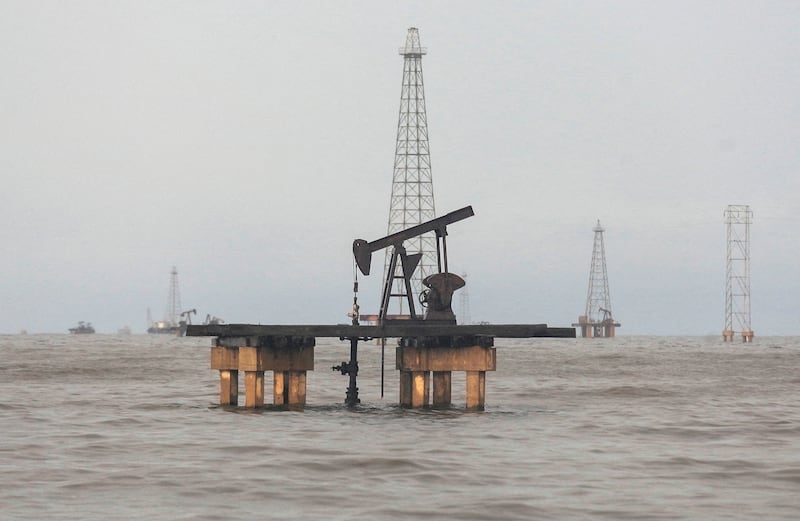Oil prices were down on Tuesday amid concerns of further interest rate increases and as political opposition to the US debt-ceiling agreement reignited concerns of a default.
Brent, the benchmark for two thirds of the world’s oil, was trading 2.14 per cent lower at $75.42 a barrel at 2.13pm UAE time. West Texas Intermediate, the gauge that tracks US crude, was down 2.01 per cent at $71.21 a barrel.
On Monday, Brent settled 0.16 per cent higher at $77.07 a barrel. There was no trading in WTI futures overnight as markets were closed for the Memorial Day holiday in the US.
"The market is pricing in the odds – even if small at this point – that the debt-ceiling bill does not pass through the US Congress smoothly. That leaves the spectre of a default lurking in the shadows," Vandana Hari, chief executive of Singapore-based Vanda Insights, told The National.
"That anxiety is probably drawing attention back to the broader economic worries surrounding credit tightness, which had been pushed aside by the debt-ceiling drama over the past fortnight, but are now gradually returning to the centre stage."
US President Joe Biden and Kevin McCarthy, the Republican Speaker of the House, reached a provisional agreement late on Saturday to suspend the federal government's $31.4 trillion debt ceiling.
However, a group of Republican politicians said on Monday they would oppose the deal to raise the debt ceiling, Reuters reported.
“Another month of strong US jobs data and solid wage growth should further fuel the [US Federal Reserve] rate hike bets and support the dollar,” said Ipek Ozkardeskaya, a senior analyst at Swissquote Bank.
In March, the central bank raised interest rates by a quarter of a percentage point and indicated that it could pause future increases after the collapse of three big US banks triggered fears of a new financial crisis.
Rising interest rates limit economic growth and strengthen the dollar, making oil more expensive for holders of other currencies.
The US Dollar Index – a measure of the value of the greenback against a weighted basket of major currencies – has gained more than 2 per cent over the last month. It was down 0.07 per cent at 104.14 on Tuesday.
Daniel Richards, Mena economist at Emirates NBD, said energy markets will be looking ahead to the Opec+ meeting on June 4 for signals on where crude prices will head in the short term.
The oil producer's group will meet as Brent futures trade well below $80 a barrel despite the announcement of an output cut by some members last month.
The international benchmark has lost more than 11 per cent of its value since the beginning of the year as weak economic growth in the US and China weigh on the outlook for fuel demand.
Last week, Saudi Arabia's Energy Minister told oil market short sellers to “watch out”, which was seen by some traders as a signal for further output reductions.
“I keep advising them that they will be 'ouching'. They did 'ouch' in April,” said Prince Abdulaziz bin Salman during an event in Qatar.
However, Russian Deputy Prime Minister Alexander Novak later said he expected no new steps from Opec+, Reuters reported, citing his interview with Russian daily Izvestia.
"On the physical side, oil has no support from China as the outlook over its economic recovery remains gloomy, while the additional voluntary Opec+ cuts are also being partially discounted, as Russia is clearly not curtailing output by 500,000 barrels per day," Ms Hari said.






